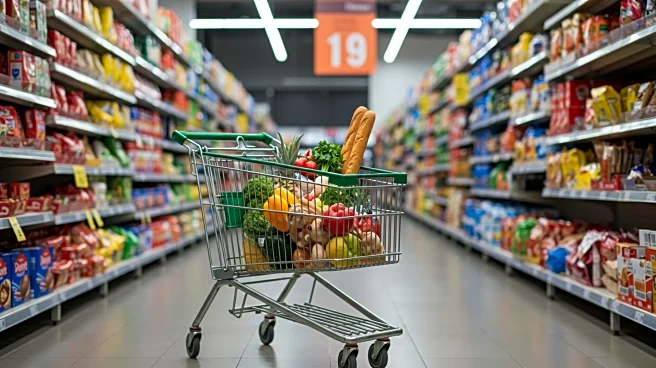What is the story about?
What's Happening?
The UK government is planning to increase business rates on properties with a rateable value exceeding £500,000, a move that is expected to push over 100 large supermarkets, including those operated by Sainsbury's, Tesco, and Morrisons, into financial difficulty. This change is intended to fund discounts for smaller retail and hospitality outlets. Sainsbury's and Tesco, which reported significant profits last year, are anticipated to manage the cost increases better than others. However, the rate hike is expected to impact a substantial portion of Morrisons' and Asda's stores, while Aldi and Lidl, which operate smaller stores, will be less affected.
Why It's Important?
The proposed business rates increase could significantly impact the retail landscape in the UK, potentially leading to store closures and job losses in the supermarket sector. Large retailers like Sainsbury's and Tesco may absorb the costs due to their financial strength, but smaller or less profitable stores could struggle. This shift could alter competitive dynamics, benefiting smaller stores that receive rate discounts. The policy aims to create a fairer business environment, but it may also lead to unintended consequences, such as reduced consumer choice and increased prices if supermarkets pass on the costs to customers.
What's Next?
The UK Treasury plans to implement permanently lower tax rates for retail, hospitality, and leisure properties starting next year, with no cash cap on the new rates. This policy change is part of a broader effort to support high streets and encourage investment. Supermarkets and other stakeholders will likely engage in discussions with the government to mitigate the impact of the rate increase. The retail industry will be closely monitoring the situation to assess the long-term effects on their operations and financial health.















